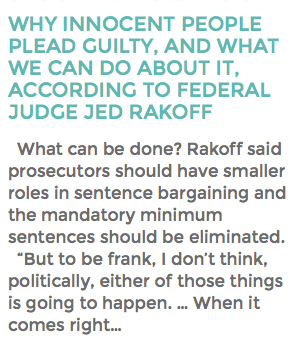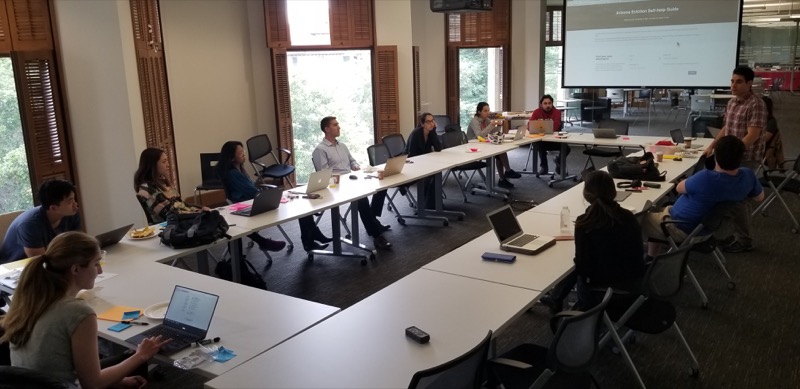What can be done? Rakoff said prosecutors should have smaller roles in sentence bargaining and the mandatory minimum sentences should be eliminated.
“But to be frank, I don’t think, politically, either of those things is going to happen. … When it comes right down to it, I think the public really wants these high penalties, and that’s because when these harsh penalties were imposed [in the 1980s], the crime rate went down.”
Another more controversial solution is to allow judicial involvement in the plea bargain process. A judge who is not involved in the case could take a first pass at an agreement, working with prosecutors and defense attorneys.
“What I have in mind is a magistrate judge or a junior judge would get involved,” Rakoff said. “He would take offers from the prosecutor and the defense. … He would evaluate the case and propose a plea bargain if he thought that was appropriate, and he might, in appropriate cases, say to the prosecutor, ‘You don’t have a case and you should drop it.’ This would be very difficult for the judiciary; it’s not something I come to lightly, but I can’t think of any better solution to this problem.”
Until extraordinary action is taken, Rakoff said little will change.
Judge Jed Rakoff, in an April 2014 talk at the University of Southern California


